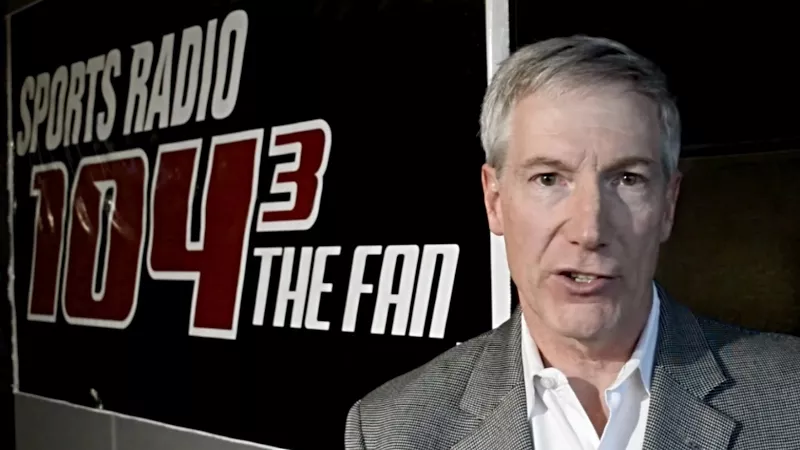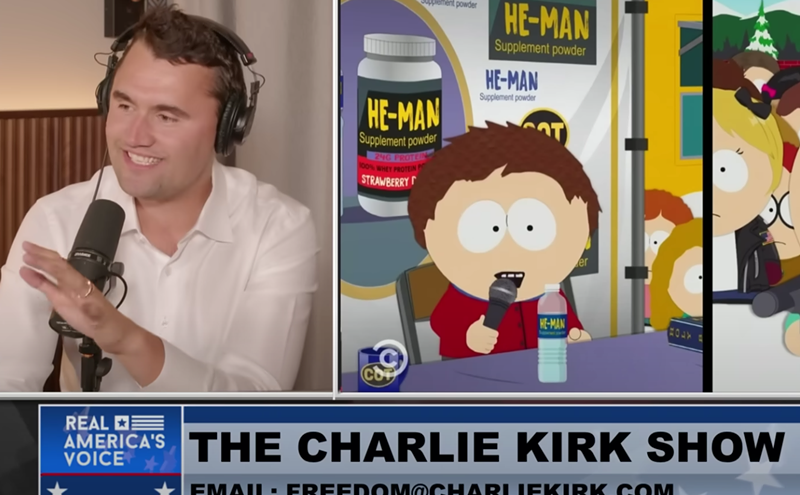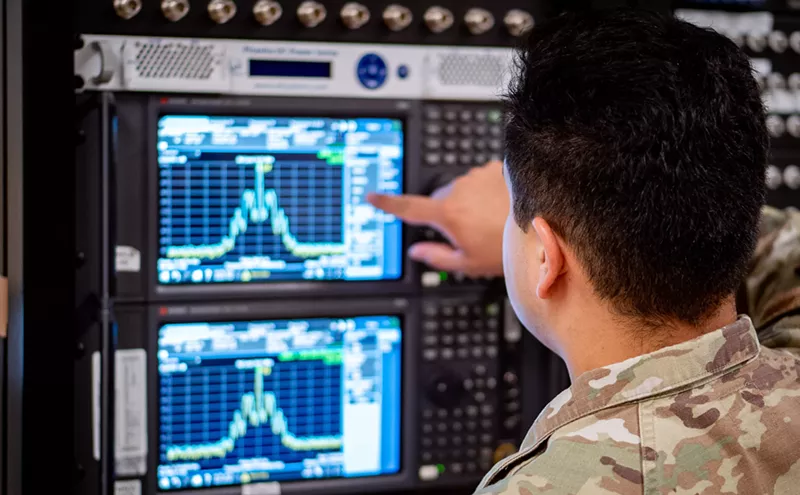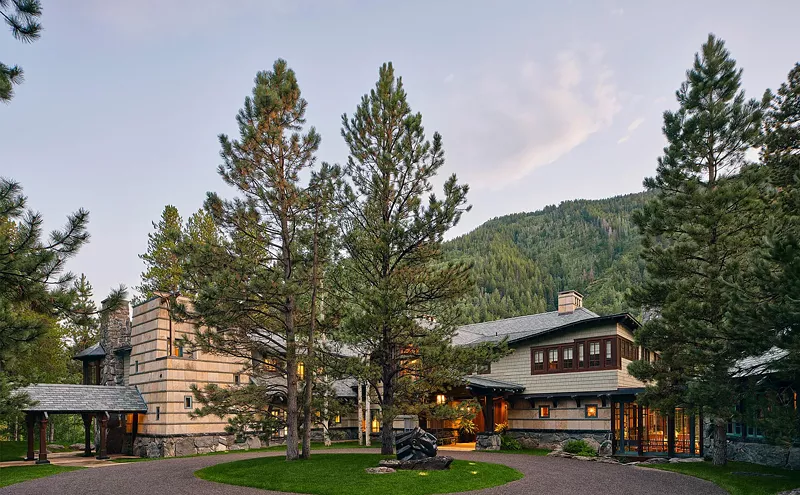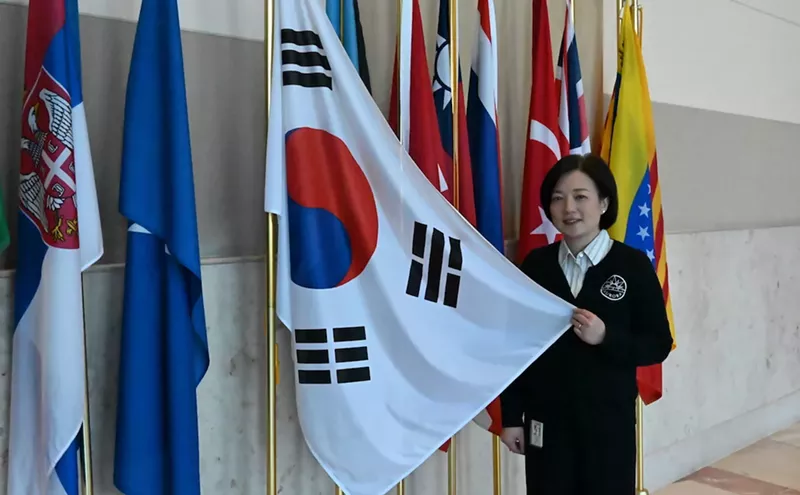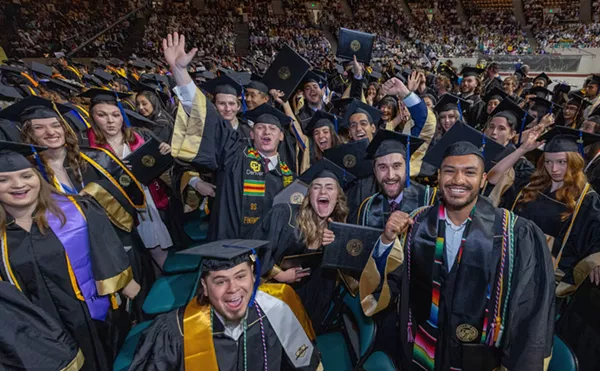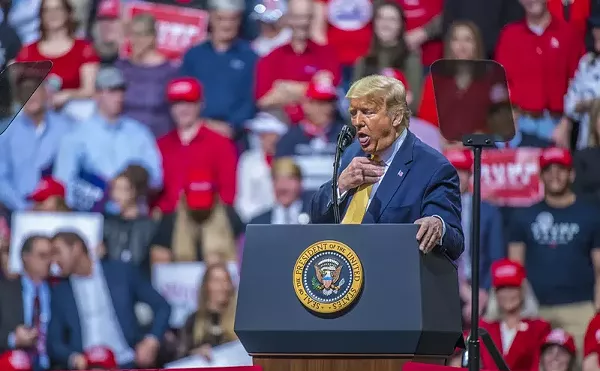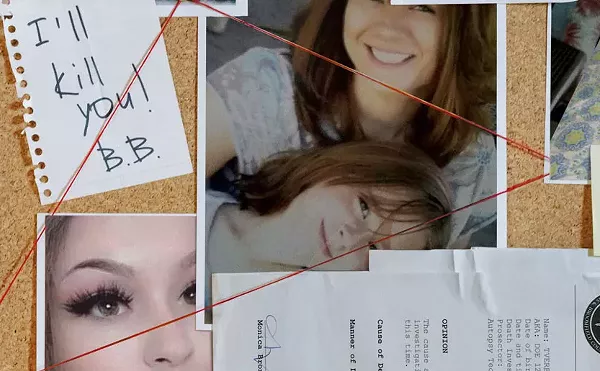So when he's asked about his retirement from 104.3 The Fan amid a slew of changes at the station, including the decision not to renew the contract of afternoon drive-time personality Tyler Polumbus, he is characteristically frank. Clough, who's 65, acknowledges that he would still be behind a microphone had management not decided to discontinue all live weeknight programming, including the 9 p.m.-to-midnight show he co-hosted with Shawn Drotar. But he also says he's "not the least bit bitter about it."
He adds, "While I'm not at liberty to fully divulge other things that have been happening in my life recently, there are things that made me think, 'Boy, I could probably retire right now if I wanted to.' And the fact that it's worked out this way is not disturbing to me at all."
Clough's career dates back to the Jimmy Carter administration. "I broadcast from August of 1979 until mid-September of 2022. That's 43 years and one month, and I've only worked for three radio stations, all of them local, in that time. I was at KOA through May of 1990. Then I was at KBIG [a defunct station formerly at 1090 AM] from July of 1990 to December of 1995. And I was full-time at The Fan from March of 1997 until last week — so 25 1/2 years at The Fan."
During that last span, Clough worked in a wide variety of time slots. "I don't think I've missed one from 6 a.m. to midnight," he notes. "I've been on every hour of those eighteen at one time or another."
Sports talk is often slangy and loose, as befits a subject that many in the journalism business refer to either affectionately or dismissively as "the toy department." But that wasn't Clough's style. His conversations were consistently erudite, learned and deeply researched, and he didn't shy away from wielding his skills in debates with listeners, many of whom seemed to walk away from such face-offs in tatters.
Along the way, Clough earned a reputation as a brainiac that he believes is overstated. After his retirement was announced on September 15, he received an email from a friend who responded to a description of him as the smartest man in radio with "That's a pretty low bar." Recalls Clough, "And I laughed. I thought that was great, because I'm not an intellectual. I'm a guy who grew up loving sports and loving radio in equal measure, and the fact that I was able to marry the two of them for 43 years and have a career in which I was basically allowed to say what I wanted to say in the most unvarnished way possible is remarkable."
He admits, "I did cross the line a time or two, but I generally had general managers and program directors through the years who, as they say in sports, coached me hard — and I welcomed that. Whether the criticism was something I agreed with or not, I appreciated the critique, and actually, I probably would have been better off had I gotten even more of that than I did. But there was kind of an implicit bargain: We will let you speak your mind."
That was the case even during his stint with KOA, which may have had relationships with more sports teams than any other Denver broadcaster. "During my time there, we had the Broncos, CU football, CSU football for a few years, the Nuggets, minor-league baseball before the Colorado Rockies came to town," he says. "We even did Colorado Rockies hockey in its last year, and I was allowed a tremendous amount of freedom in exchange for operating within the guidelines. But I thought the guidelines were pretty generous."
When an athlete or big shot got pissed off by something he said, Clough continues, "I always tried to be around. That was something I learned from my friends Ron Zappolo and Al Albert: Show up the next day so they can have their say. Don't hide. I went to games not only because I enjoy watching sports live, but also so I could talk to people. ... That was my idea of being a professional. It doesn't mean you're always right, but I tried to be fair, and I never thought I got personal. I had some ups and downs with just about every coach and player I ever dealt with, but in the end, even though there might have been disagreements here or there, the relationships most often, if not all the time, were mutually respectful."
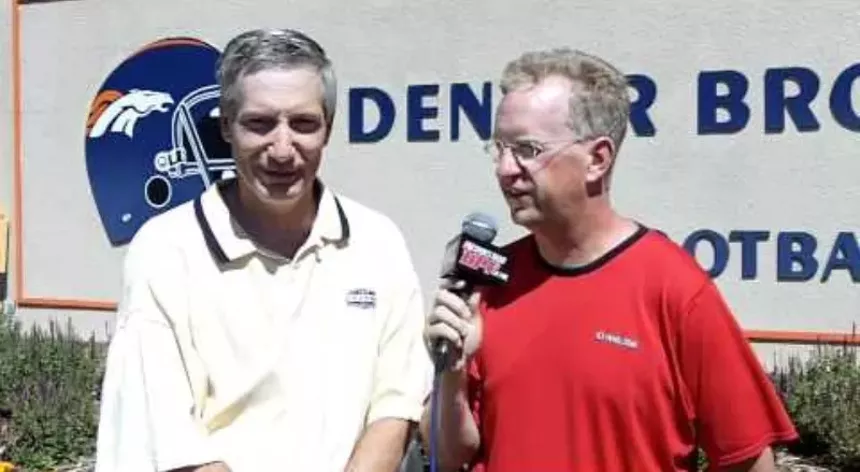
A vintage shot of Sandy Clough and colleague Darren "D-Mac" McKee broadcasting from Denver Broncos headquarters.
No matter the station, "my bosses would tell people, 'If Sandy got a fact wrong, he'll apologize for it. But if you're questioning something he clearly labeled as opinion, he's allowed to have an opinion. You may not like it, but if it's labeled as opinion, it's fine.' That was especially true at The Fan," Clough says. "We've had limited direct affiliation with teams, and that's been fun. And I have the utmost admiration and tremendous respect for the people I've worked with there."
At the same time, Clough expresses regret over what he calls "the fallout" from The Fan's elimination of live, local programming from 6 p.m. to midnight on weeknights — a move that affected hosts Drotar and Cecil Lammey, whose future roles are currently under discussion, according to a source close to the station. In contrast, Clough says, "I was able to retire, and Bonneville [International, owner of The Fan] has taken care of me. They've been more than generous. I got the most golden of golden parachutes. They've gone far beyond the call of duty. But for Shawn and Cecil and others, I hope that whatever negotiations are going on, they have an outcome that allows them to fully express their talents."
In the meantime, Clough says, the powers-that-be at The Fan are pouring resources into beefing up the station's website rather than continuing to finance the sort of evening programming that most of its competitors dropped years ago — and he understands why. "These are people who are paid to forecast what radio will look like in three years, four years, five years from now," he says. "I have my own opinions, but I think the ground under my feet has been shifting a little bit — and maybe in five years, everything will be online and subscription-based, just like most newspapers are now."
Owing to the events of the past couple of years, "the on-air distribution of content is changing," he explains. "That's just the way it is, and I'm sure they're right when they tell me that fewer people are listening to radio the way they used to before the pandemic. Everyone is doing podcasts now, and I would have friends tell me, 'I'm not going to listen to three hours between nine and midnight, but I might listen the next morning at the gym while I'm working out.' So I understand what's going on."
Nonetheless, he adds, "It's my opinion that there is still a vast audience for live-talk radio because of the post-game shows we've done this year. We're obviously not affiliated with either the Avs or the Nuggets, but the station's commitment to doing post-games after every regular-season Avs and Nuggets game and every post-season game never wavered. They were fully committed, and I felt like the impact was tremendous. But they're going in a different direction, and they're the ones who have the research and the facts at their fingertips. I don't."
He adds: "I've been fired before, and I've gotten back on my feet. But in all honesty, if I were forty years old today, I don't know what I'd do. I'd be in a lot more distress than I am right now, that's for sure. There's been a lot of good fortune along the way for me."
At this point, Clough says, "there are a lot of doors open for me," and he doesn't rule out the possibility that he could pop up on the local airwaves again — and indeed, he's scheduled to guest with fellow KBIG alum Peter Boyles on the latter's 9 a.m. show this Saturday, September 24, on 710 KNUS. For now, though, "I've joined the retirement community in sports media, which is a rather large community. I get to spend some more time with my friends — what's wrong with that? — and I didn't have to do the perp walk, where you're fired and led out of the building and your key is taken away, which is kind of a shameful thing. I got just the opposite. I've gotten all these salutes from my media friends in print and electronically from competing stations."
The plaudits are "exaggerated," he insists, but he's comfortable referring to himself as "a survivor — and for my own mental health, doing this for another ten or fifteen years might not be the best thing. Is this so much part of my life that I'm literally going to do it until my last breath? No. That's insane. There are too many other things to be done."
Such as what he did this past Sunday. "I watched the Broncos game," he says. "I've been doing post-game shows on and off for 42 years, and it was great to be able to watch the game with some friends and not have to worry about shaping my commentary for a post-game show. I just watched the game — like a normal person does."

